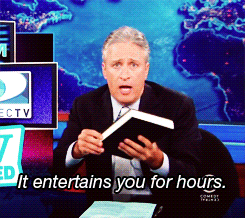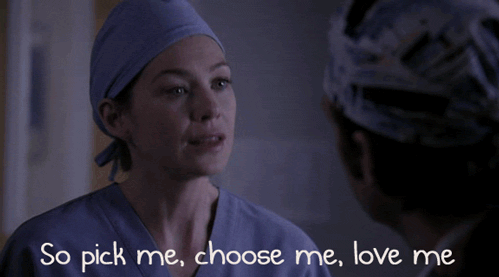The difference between Traditional and Self Publishing – Part Deaux
About nine months or so ago I did a post about this (which you can find here) but I wanted to update it. In the last year, I’ve learned far, far more about self-publishing and I’d like to expand my analysis.

Authors often get a lot of the same questions over and over. There’s nothing wrong with these questions. In fact, sometimes I really enjoy them — they’re the kind of questions I feel confident in answering. But I don’t usually feel that way about self-publishing questions, no matter how often people as me about self-publishing.
The questions I get most often are as follows:
1. Are you self-published? (No.)
2. Do you know anything about self-publishing? (Some.)
3. Would you recommend I self-publish? (Maybe.)
4. Would you (being me) ever self-publish? (Again, maybe.)
There are certainly other questions, but these are the big ones. And I know this is a topic of interest for people because my post about self-publishing from last summer still gets a lot of daily hits.
But my post from last year, frankly, isn’t particularly comprehensive. I mean, it’s somewhat informative, but I only discuss a couple of big differences between the two realms of publishing. Since self-publishing has become such a phenomenon, I figured I’d spend a little more time explaining the differences, or at least how I see the differences between the two.
So, what are the big differences between traditional publishing and self-publishing? I can break it down into four major points:
1. Promotion
2. People/ Connections
3. Expectations
4. Money
Now, please let me be clear — this is merely my opinion based on what I’ve seen and experienced. I have not self-published. I can only base my findings on what I’ve learned over the last six years in traditional publishing and through friends who have self-published. And each of these vary depending on experience, of course.
Okay – without further ado:
1. Promotion

This one is first and for good reason. When you are a self-published author, promotion is completely up to you. There is not marketing department or publicist who is going to back you up. There are no ARCs (Advanced Reading Copies) to send to bloggers and reviewers. There isn’t a blog tour set up for you. The only promotion is the promotion you plan.
That means you need to be friendly. Personable. Sometimes, it means you need to be a little pushy. If you’re like me, that sounds pretty daunting.
There are plenty of options out there for authors who are going the self-publishing route, but keep in mind that many of them cost money. Hiring a publicist costs — so does paying for a promoted book tour or Facebook ads, etc.
It’s true that, if anyone asks you for money to publish your book, you should run away — as fast as you can. But don’t think that you can enter the arena without having to pay for at least some of the promotional work. I’m traditionally published, but I have a publicist I’ve retained, I’ve purchased ads on Facebook, and I’m sure there are other things I will do in the future that cost money. However, I do not have to pay anyone to edit my work or send it to major reviewers and I don’t have to pay for a blog tour. Thus far, my publisher has taken care of all of that.
2. People/Connections

We don’t live in a bubble – but, sometimes, it feels like it when you’re a writer. You do the bulk of your work on your own – or perhaps with a co-writer, but still that’s often via email/online, not in person. You will see your family and your friends on occasion. If you have a day job, you see those people, too. But when it comes to the people you need to further your career, it’s hard to meet them and get them in your corner when you’re one of millions of people self-publishing your book.
There’s sort of a chain of command when it comes to publishing — you try to get an agent first and, once you have nabbed that agent, then the connections begin. Your agent, assuming they are worth their salt, will have relationships with editors and industry professionals (read – film/television agents, audio book companies, foreign rights reps, etc.) that will allow your career and your book to go further than it would on its own. It is very VERY hard to get access to these people if you don’t have an “in.” Your agent should be that in.
But, if you’re self publishing without an agent, you need to be realistic about how many people you need to get your book out to and how to get your book read. This goes back to the promotional step. You don’t need to worry about selling your manuscript to an editor, but you do need find your own way to make the connections you’re looking for. For many writers, that’s Hollywood — they want their book to be a movie. (The likelihood of this, and the problems that go along with movie rights are a blog post unto themselves, I think. But, regardless.)
So, you want what you want and, when you go through traditional publishing, you often have a better chance of getting there. But there are NO guarantees — not if you’re self publishing or traditionally publishing. Taste Test sold to Bloomsbury in 2011 and has been on the shelves for nine months and my film rights haven’t budged. So, you can’t just expect it to happen in any situation.
(I’m sorry, I think I’m starting to sound like a Debbie Downer. I really don’t mean to be — I just think expectations should be realistic. And speaking of which…)
3. Expectations

Now, I’ve got to be honest — I’ve labeled this as a difference between traditional and self publishing, but the realistic expectations are something that apply across the board. It’s easy to get caught up in your own hype when you find out your book has sold to a publisher, too.
But, more often than not, I’ve seen self-published, or soon to be self-published authors have grandiose ideas about the money they will make self-publishing. I’m not saying this doesn’t happen — it TOTALLY happens. I’m just saying that your goal shouldn’t be to be Amanda Hocking, because it will be far more likely that you’ll end up disappointed.
Instead, consider this — if your book makes any money at all, if people buy and like it, then that’s a victory right there.
But I’ve also seen prospective self-published authors bash the idea of agents — calling them useless or worse — and making it sound like giving an agent 15% of your earnings (which is standard across the board) is some kind of theft or something. My agent earns every penny she makes. I know that for a fact — she’s incredibly hardworking and driven. More importantly, she is fostering my career. She is helping me build a career that I can live with and love doing. So, yeah. Don’t get me started on that. Agents are worth their weight in everything precious you can think of.
But, look. Let me be brutally honest. The probability of you making enough money to live off of with your self-published book is unlikely. Just like me making enough money off of one book is unlikely. You need to keep publishing more books.
4. Money

So, yeah.
This is the big one.
And that doesn’t mean the money is big money — it just means that this is where I often see the biggest difference.
When you publish traditionally, you get an advance. That advance can be anywhere from $500 to millions. More likely, it’ll be somewhere between $1000 and $10,000 for a first book (this is young adult — I can’t speak for other genres, except to say that young adult is the category with the largest advance.)
Now, this turns a lot of writers off and they sometimes turn to self-publishing because advances feel too paltry. However, let me be clear — that advance is real money. It comes to you, contractually. Half or a third of it comes before you’ve even done much — just after you’ve signed the contract.
It is real money. The self-publishing money that you WANT to get is only conceptual money until you actually see it happen.
Now, let’s say you put your book out there as a self-published book and it doesn’t do what you were hoping — unless your book sells upwards of 20k books in the first month (no, I’m not exaggerating) it’s almost impossible to get the interest of an agent with that book. Moreover, it’s now published — so you can’t “pull it back” and try to publish traditionally, or query an agent traditionally. When you’ve self-published, that book is effectively published and can’t be “re-published” traditionally (except for VERY specific situations.)
So, let’s go back to the questions people ask me – particularly #3 and #4.
3. Would I recommend someone (i.e. you) self-publish?
Maybe — it wholly depends on what you are looking for from that process.
Do you want to get rich and that’s the only/major reason? No — you shouldn’t. You’ll very likely be disappointed.
Do you want to be published quickly? Then, yes — you should. Publishing is slow. Books come out 18-24 months from when they are acquired. If you can’t wait that long, consider self-publishing.
Do you write genre (romance/sci-fi/etc.) and write a lot of it? Yes, self-publishing might be a great avenue for you, especially if you write so fast that the traditional model stifles your process.
Do you want to have people buy your book on Amazon/Barnes & Noble websites? Yes, self-publishing will help you do this.
Do you want to sell your book IN a bookstore? Most likely, you will not get placement in a bookstore *unless* you use a local angle. Sometimes locally owned businesses carry local author’s books near the registers.
And, 4. Would I ever self-publish?
Never say never. I’ve though about self-publishing romance under a pen name in the future. But, for right now, I’m confident with my relationship with my publisher(s) and I don’t feel that self-publishing can offer me anything that traditional publishing can’t.
Look, let me be clear — self-publishing is not an easier option than traditional. It’s a different option than traditional. There are options in between, too. There are companies that will assist you in your self publishing. There are book packagers. There are lots and lots and lots of versions of this crazy business.
So, hopefully this gives you a general idea of the difference — but if you have any more specific questions, feel free to drop me a message on the Contact page — I’d be happy to help!



